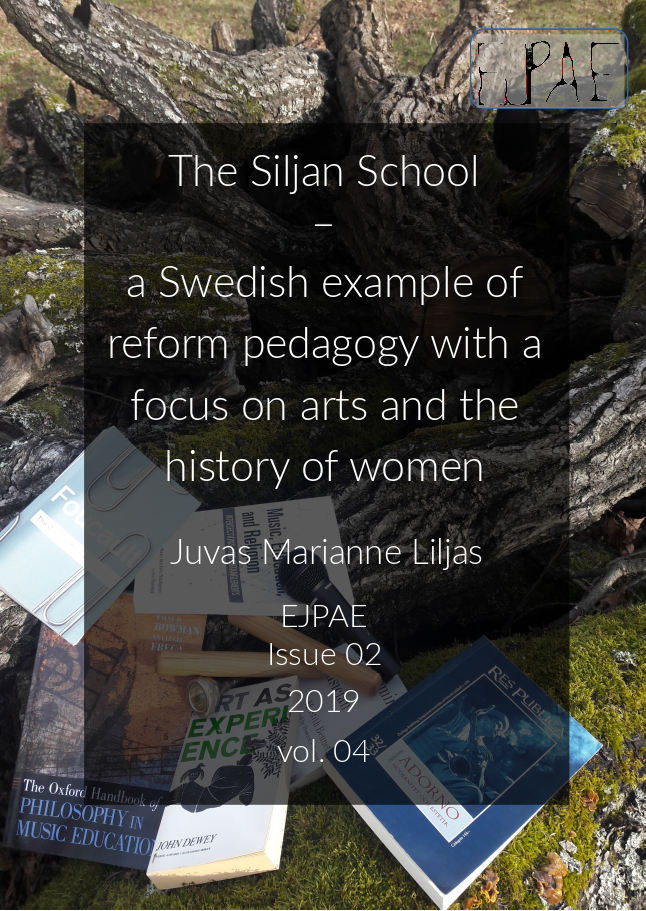The Siljan School
a Swedish example of reform pedagogy with a focus on arts and the history of women
DOI:
https://doi.org/10.5281/zenodo.3674121Keywords:
reform pedagogy, arts education, home-schooling, the personal development ideal, aesthetics, free school systemAbstract
The aim of the article is to shed light on the reform school Siljan School as a historical lens on the education system. The School is analysed in the main part of the article in relation to The New Education Fellowship, and the reform pedagogical approaches which led to new schools. What is central for Swedish free school’s formation are the ideals of reform pedagogue Ellen Key based in women’s history and the view of arts education. In relation to the ideas of the Siljan School, its founder Signe Bergner Alm (1881–1945) is discussed as a fore-runner of the free schools which flourished in the tracks of the women’s movement. Methodologically, Ricoeur’s history criticism is a method of interpretation where the concept of retroactive forgetfulness (reservglömska) is significant. In terms of education history, links are demonstrated to the pedagogical significance of the middle-class salons for home-centred schooling in an era of collective education discourse

Downloads
Published
Issue
Section
License
EJPAE provides immediate open access to all its published content. Users do not need to register or pay to read content.
https://creativecommons.org/licenses/by/4.0/
Authors of content published in European Journal of Philosophy in Arts Education (EJPAE) retain the copyright to their works. Content is free to be used by anyone as long as you "[...] give appropriate credit, provide a link to the license, and indicate if changes were made. You may do so in any reasonable manner, but not in any way that suggests the licensor endorses you or your use." and "No additional restrictions — You may not apply legal terms or technological measures that legally restrict others from doing anything the license permits." (from the Creative Commons licence agreement)
EJPAE does not charge any author or publication fees.
Authors are encouraged to deposit the final published version of their article for self-archiving (author's personal website) and/or archiving in an institutional repository immediately upon publication.




